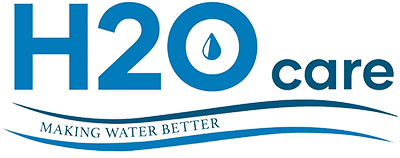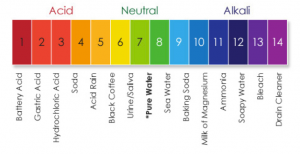As a Lancaster, MA resident, whether your water is supplied by the town or a private well, a water filtration system or water softener may greatly benefit you. Later in this write-up, specific contaminants that are commonly found in Lancaster private wells and the public water supply are identified and effective remediation methods are covered. Excellent water quality is achievable with the proper approach.
WATER TESTING & ANALYSIS
If you have a private well, a water sample should be tested by a state or EPA certified laboratory and should include analysis for at least the parameters in the table below and potentially more depending on the situation. If you are uncertain as to how to take a proper sample and get it to a lab, you should contact a lab or water treatment professional for assistance. They can walk you through the steps required to complete this task. If your water is town supplied, they frequently test for health threat contaminants, therefore, an in-home water test can be performed on items such as iron, hard water minerals, total dissolved solids, pH or chlorine level. Typical items tested for at a lab are as follows:
| Coliform bacteria | pH |
| Arsenic | Radon |
| Chloride | Sodium |
| Iron | Sulfate |
| Lead | Conductivity |
| Manganese | Nitrogen-Nitrate |
| Hardness | Total Dissolved Solids |
COMMON CONTAMINANTS
Common issues encountered in Lancaster, MA private wells are manganese and iron along with low pH. Sometimes homeowners are surprised that their water test results confirm the health threats radon and arsenic in the water. Even in the public water supply, you may notice symptoms of hard water, iron, manganese or low pH in the water.
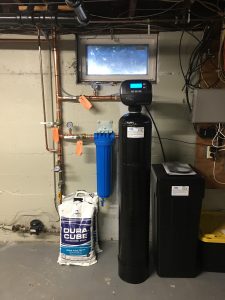
Water Softener & Sediment Filter
Water softeners are typically installed to remove hard water minerals, dissolved iron or manganese in the water through a technology called Ion Exchange. Particulate iron or manganese (which you can see in the water) can be removed with a properly sized sediment filtration set up.
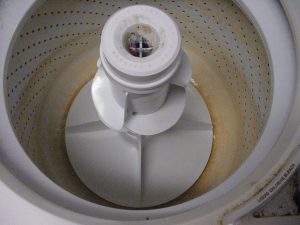
Dissolved Iron Staining
BAD ODORS & TASTE IN WATER
There are many other types of systems to remove bad tastes & odors, sediment and many other objectionable minerals and contaminants in the water. There are “point of entry” systems that will provide filtration for all of the water entering your home or facility. Also, there are “point of use” water filtration systems that will provide filtered water at a sink or other single point of use, typically by feeding the filtered water to a designated, separate faucet. Starting with a water test will help steer to the right approach for you. For more on bad odors & taste in your water, see the link at https://h2ocare.com/bad-odor-taste/.
RADON & ARSENIC in private wells
The current Massachusetts radon remediation action level is at 10,000 pCi/L (Pico curries per liter) in water. The radon must be removed from the water and it is recommended testing the air for Radon as well. It should be noted that New Hampshire requires action if radon is only at 2,000 pCi/L. Maine and Rhode Island actionable levels are at 4,000 pCi/L, while the EPA is at 4,000. For more on radon see the link at Radon In Water Link.
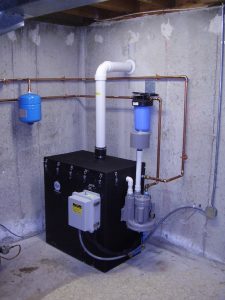
Radon in Water Filtration
ARSENIC IN WATER
The Arsenic maximum allowable level in drinking water per the EPA is .01 mg/L (miligrams per liter) or 10 parts per billion. For more information on this see the link at Arsenic Link- DEP Arsenic removal is performed with tanks containing a specific media that grabs the arsenic out of the water. Removing radon from water requires a system in which the water is agitated in a sealed chamber then vented to the outside, sending the radon gas to ambient air. Other technologies and systems are used to remove other contaminants. Any water filtration system designed should start with a water test before an informed recommendation can be made.
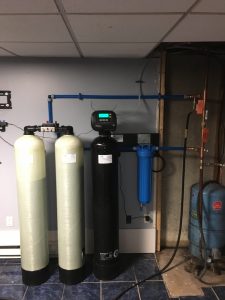
Twin Arsenic system with Ozone
